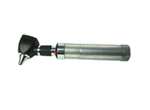The rollout of electronic heath records (EHR) continues in the U.S., with doctor and patient ratings running the gamut from "great" to "needs a do-over." For instance, Information Week reports the results of a study in the American Journal of Managed Careindicating that Kaiser Permanente members who used the health insurer’s My Health Manager personal health record (PHR) service were more than twice as likely to stay with Kaiser as those who did not. The AJMC study concludes that online access to medical data and advice may becoming a factor in choosing a health plan.
According to a Kaiser press release, some 63 percent of the nearly 4 million eligible users of My Health Manager are active users; more than “1 million secure email messages are sent to Kaiser Permanente doctors and clinicians each month, and nearly 2.5 million lab test results are viewed online.” Kaiser completed the rollout of its EHR system in March 2010.
Despite the seeming popularity of Kaiser’s EHR/PHR system, the American public at large still seems generally wary of digital medical records. A recent survey by Xerox Healthcare, for instance, showed that while 40 percent of Americans believe EHRs “will deliver better, more efficient care”—a low percentage in and of itself—only 28 percent of respondents want EHRs. Just as many (26 percent) say they aren’t interested in them, with nearly half of that group claiming that they are frightened by the prospect of their medical records exist in digital form. The biggest worry expressed by the dissenters is that EHRs are vulnerable to electronic theft or misuse. Interestingly, survey respondents said that patients had the least to gain from EHRs; healthcare professionals, they thought, benefited the most.
Xerox says that what healthcare organizations must do to overcome this wariness is "continue to educate Americans on the value of EHRs."
A number of doctors may also need convincing of their value. Some of the more recent data (pdf) from the U.S. Centers for Disease Control (CDC) indicate that 55 percent of doctors are adopters of EHRs. But while an increasing number of doctors and hospitals seem to accept the necessity (or inevitability) of adopting EHRs, not all are necessarily happy about it. The CDC survey indicates that 38 percent of doctors who are using EHRs are very satisfied with their systems, while 5 percent are very dissatisfied with them. In addition, 47 percent of doctors say they are somewhat satisfied, while 10 percent indicate they are somewhat dissatisfied with their EHR system.
A recurring issue of concern for healthcare professionals is the steep EHR learning curve (often caused by their abysmal design) and the dip in healthcare facility productivity that a move to EHRs creates. For example, an Associated Press article reported that wait times in an Ohio hospital emergency room doubled as it switched to its new EHR system in June. The wait times are now being reduced, but have yet to reach pre-EHR levels.
Another recurring issue is that the implementation of EHR systems doesn’t always go smoothly for healthcare organizations large or small, as seen by the problems recently reported in Vermont, Pennsylvania and Kansas.
A looming implementation concern is what will happen when U.S. government EHR incentive money runs out. According to a Modern Healthcare article, “as of July 5, there were 816 different EHR vendors offering 1,477 'unique' certified products.” All of them have managed to make it onto the Office of the National Coordinator for Health Information Technology’s official Certified Health IT Product List. And more EHR vendors are expected to appear over the next few years. No doubt, a large number of these vendors will not survive, especially as the EHR market hits the saturation point. Then the "fun" will really begin as doctors and hospitals have to change EHR systems on their own nickel.
Robert N. Charette is a Contributing Editor to IEEE Spectrum and an acknowledged international authority on information technology and systems risk management. A self-described “risk ecologist,” he is interested in the intersections of business, political, technological, and societal risks. Charette is an award-winning author of multiple books and numerous articles on the subjects of risk management, project and program management, innovation, and entrepreneurship. A Life Senior Member of the IEEE, Charette was a recipient of the IEEE Computer Society’s Golden Core Award in 2008.



